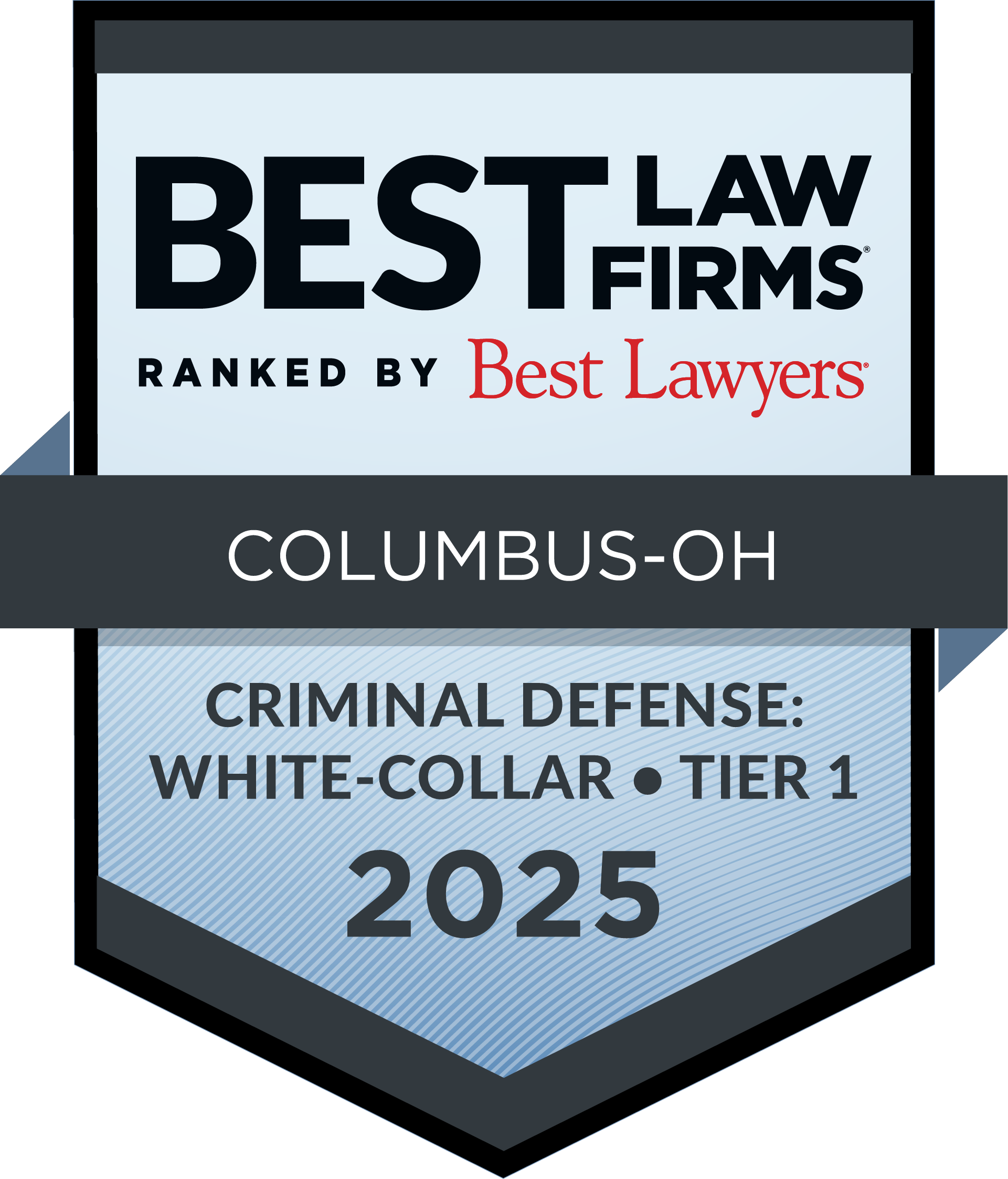Attacking General Scientific Reliability of Breath Alcohol Tests in Ohio
In accordance with R.C. 4511.19(D)(1)(b), the Ohio Department of Health (ODH) approved the Intoxilyzer 8000 as a reliable testing device for determining the breath-alcohol concentration of an individual suspected of driving while under the influence of alcohol (OVI / DUI / DWI). In State v. Vega,[1] the Ohio Supreme Court precluded an accused from presenting expert testimony attacking the general scientific reliability of breath-alcohol tests that have been conducted in accordance with methods approved by the director of ODH.
R.C. 4511.19(D)(1)(b) governs the admissibility of alcohol-test results and provides in relevant part:
In any criminal prosecution or juvenile court proceeding for a violation of division (A) or (B) of this section or for an equivalent offense that is vehicle-related, the court may admit evidence on the concentration of alcohol, drugs of abuse, controlled substances, metabolites of a controlled substance, or a combination of them in the defendant’s whole blood, blood serum or plasma, breath, urine, or other bodily substance at the time of the alleged violation as shown by chemical analysis of the substance withdrawn within three hours of the time of the alleged violation. * * *
The bodily substance withdrawn under division (D)(1)(b) of this section shall be analyzed in accordance with methods approved by the director of health by an individual possessing a valid permit issued by the director pursuant to section 3701.143 of the Revised Code.
In turn, R.C. 3701.143 provides that the director of ODH “shall determine, or cause to be determined, techniques or methods for chemically analyzing a person’s whole blood, blood serum or plasma, urine, breath, or other bodily substance in order to ascertain the amount of alcohol, a drug of abuse, controlled substance, metabolite of a controlled substance, or combination of them in the person’s whole blood, blood serum or plasma, urine, breath, or other bodily substance. The director shall approve satisfactory techniques or methods, ascertain the qualifications of individuals to conduct such analyses, and issue permits to qualified persons authorizing them to perform such analyses.”
Pursuant to this authority, ODH promulgated Rule 3701-53-02(A)(3) of the Ohio Administrative Code, approving the Intoxilyzer 8000 as an evidential breath-testing instrument for use in determining the concentration of alcohol in a person’s breath for purposes of R.C. 4511.19.
Construing substantively similar former versions of these statutes in Vega, the Ohio Supreme Court noted that the General Assembly had “legislatively resolved the questions of the reliability and relevancy of intoxilyzer tests.” The court explained:
[The judiciary must recognize] the necessary legislative determination that breath tests, properly conducted, are reliable irrespective that not all experts wholly agree and that the common law foundational evidence has, for admissibility, been replaced by statute and rule; and that the legislative delegation was to the Director of Health, not the court, [of] the discretionary authority for adoption of appropriate tests and procedures, including breath test devices.[2]
Because the legislature provided for the admissibility of intoxilyzer tests if analyzed in accordance with methods approved by the director of ODH, an accused may not present expert testimony attacking the general scientific reliability of approved test instruments.[3]
Nonetheless, in State v. Tanner[4] the Ohio Supreme Court recognized that although an accused may not challenge the general accuracy and scientific reliability of the test procedure selected by ODH, the accused “may still challenge the accuracy of his specific test results.” Tanner concerned the constitutionality of a former version of R.C. 4511.19(A)(2) that established a per se offense for driving with a prohibited blood-alcohol concentration. The court upheld the statute and explained that it did not impose a conclusive presumption of guilt, because the accused could challenge the accuracy of his test results and “[t]he jury may consider those specific test results, and all other relevant evidence, in ascertaining whether the state has shown beyond a reasonable doubt that the defendant has violated the statute.”[5]
In Columbus v. Taylor,[6] the Supreme Court of Ohio noted that “[i]t is well-established that a defendant may challenge the accuracy of his specific test results.” There, the Court concluded that the trial court had not abused its discretion by excluding an expert report giving the results of simulated testing of the accused using a different BAC Verifier machine from the one police used to test his breath. But in doing so, the Court emphasized that the expert had been allowed to testify that breath-alcohol concentration test results can be inaccurate due to burping that contaminates the breath sample.[7]
Attacking Breath-Test Result Based on Failure to Substantially Comply with ODH Regulations on Chemical Testing
The Ohio Supreme Court’s decision in State v. French[8] concerned the procedure for attacking the admissibility of a breath-test result based on the failure to substantially comply with Ohio Department of Health regulations on chemical testing. The Court held that the failure to “challenge the admissibility of the chemical test results through a pretrial motion to suppress waives the requirement on the state to lay a foundation for the admissibility of the test results at trial.”[9] In those circumstances, the Court explained, “[t]he chemical test result is admissible at trial without the state’s demonstrating that the bodily substance was withdrawn within two hours of the time of the alleged violation, that the bodily substance was analyzed in accordance with methods approved by the Director of Health, and that the analysis was conducted by a qualified individual.”[10] Nonetheless, the Ohio Supreme Court stated that this waiver “does not mean, however, that the defendant may not challenge the chemical test results at trial under the Rules of Evidence. Evidentiary objections challenging the competency, admissibility, relevancy, authenticity, and credibility of the chemical test results may still be raised.”[11]
The Supreme Court of Ohio reaffirmed its holding in French in State v. Edwards,[12] noting that an accused may move to suppress an alcohol-content test based on noncompliance with regulations governing the maintenance and operation of testing devices.[13] The Court further indicated that “a defendant at trial may challenge breath-test results on grounds other than that the results were illegally obtained because they were obtained in noncompliance with the director’s rules. For example a defendant may argue at trial that the particular device failed to operate properly at the time of testing.”[14]
As these cases demonstrate, the General Assembly has delegated to the director of ODH the authority to adopt appropriate tests and procedures to chemically analyze specified bodily substances to ascertain the concentration of alcohol, drug, controlled substance, or combination thereof in those bodily substance and issue permits to qualified persons to perform those analyses. As the Supreme Court of Ohio indicated in State v. Burnside,[15] “the General Assembly instructed the Director of Health—and not the judiciary—to ensure the reliability of alcohol-test results by promulgating regulations precisely because the former possesses the scientific expertise that the latter does not.” The director has decided that Intoxilyzer 8000s, when used in accordance with department regulations, are capable of accurately measuring breath-alcohol concentrations,[16] and an accused therefore may not attack the general scientific reliability of that machine test.[17]
However, the Supreme Court of Ohio held in City of Cincinnati v. Ilg[18] that “an accused may not make a general attack upon the reliability and validity of the breath testing instrument,”[19]the director’s approval of the Intoxilyzer 8000 does not preclude an accused from challenging the accuracy, competence, admissibility, relevance, authenticity, or credibility of specific tests results at issue in a pending case.
The Court has recognized that an accused may seek to suppress the results of his breath test if the sample was not given within two hours of the time of the alleged violation and if it was not analyzed in accordance with regulations governing the maintenance and operation of testing devices.[20] And in Edwards, the Ohio Supreme Court noted that an accused may attack the breath-test results by attempting to prove that “the particular device failed to operate properly at the time of testing.”[21]
In other words, nothing in either the relevant statutes or Ohio caselaw precludes a criminal defendant accused of OVI from attacking the accuracy, competence, admissibility, relevance, authenticity, or credibility of the specific breath-test result rendered by an Intoxilyzer 8000.
[1] 12 Ohio St.3d 185, 12 Ohio B. 251, 465 N.E.2d 1303 (1984).
[2] (First bracketed insertion sic.) Vega, 12 Ohio St.3d at 188–89, quoting State v. Brockway, 2 Ohio App.3d 227, 232, 2 Ohio B. 247, 441 N.E.2d 602 (1981).
[3] Id. at 189. Notably, in Vega, the defendant did not assert a claim of abuse of discretion by the director of the ODH. Id. at 187, fn.2.
[4] 15 Ohio St.3d 1, 6, 15 Ohio B. 1, 472 N.E.2d 689 (1984).
[5] Id.
[6] 39 Ohio St.3d 162, 163, 529 N.E.2d 1382 (1988).
[7] Id. at 164–65.
[8] 72 Ohio St.3d 446, 1995 Ohio 32, 650 N.E.2d 887 (1995).
[9] Id. at paragraph one of the syllabus.
[10] Id.
[11] Id. at 452.
[12] 107 Ohio St.3d 169, 2005-Ohio-6180, 837 N.E.2d 752.
[13] Id. at ¶ 11, citing French, supra at 449.
[14] Id. at ¶ 19.
[15] 100 Ohio St.3d 152, 2003-Ohio-5372, 797 N.E.2d 71, ¶ 32.
[16] Ohio Adm.Code 3701-53-02(A)(3).
[17] Vega, 12 Ohio St.3d at 186.
[18] 141 Ohio St. 3d 22, 2014-Ohio-4258, 21 N.E.3d 278.
[19] Vega, 12 Ohio St.3d at 190.
[20] French, 72 Ohio St.3d 446, 650 N.E.2d 887, at paragraph one of the syllabus; Edwards at ¶ 11.
[21] Edwards, supra at ¶ 19.
Hiring an Experienced OVI / DUI Defense Attorney in Ohio
When the requisite regulations are not followed, an OVI defendant’s test results may be invalid. A skilled criminal defense lawyer with experience challenging OVI / DUI test results will look at the results in your case with a sharp eye for any mistakes that may open the door to getting your test results suppressed so that they can’t be used as evidence against you in court.
With no test results to support your charge, the prosecutor may be willing to negotiate for a lesser charge such as reckless operation, or to dismiss your case altogether.
SOME COMMON PROBLEMS WITH DUI TESTING INCLUDE:
- The person who administered the test did not follow proper testing procedures or was not properly trained to administer the test
- The test was not performed within the time limit mandated by Ohio law
- The samples were not analyzed properly
- The results were not recorded properly
- The machine was not properly maintained or calibrated under Ohio regulations
The Columbus DUI Attorneys at Tyack Law Firm
Criminal DUI charges in Ohio are serious. Consequences of a conviction can include jail time, loss of your driver’s license, and significant fines—not to mention the stigma of a criminal record. You may be tempted to try to represent yourself to save money, but your best chance at avoiding a conviction or getting reduced penalties is to have an experienced Columbus DUI lawyer in Columbus represent you. Your defense may come down to details in your case or nuances of the law that an experienced OVI defense attorney will be best equipped to use to your advantage. If your lawyer is successful in getting your charge dismissed or sufficiently reduced, he or she also may be able to help you get the arrest expunged from your record.
With the help of an experienced, competent Columbus DUI defense attorney, you can be assured of understanding all of your legal rights and options and know that your rights will be protected. The criminal defense team at The Tyack Law Firm protects rights of people charged with an OVI / DUI on a daily basis and would be honored to do so for you. To contact us, either call or contact us online here.
Related Areas
Talk with an experienced lawyer today.
Fill out the form below to get started with your case evaluation.















